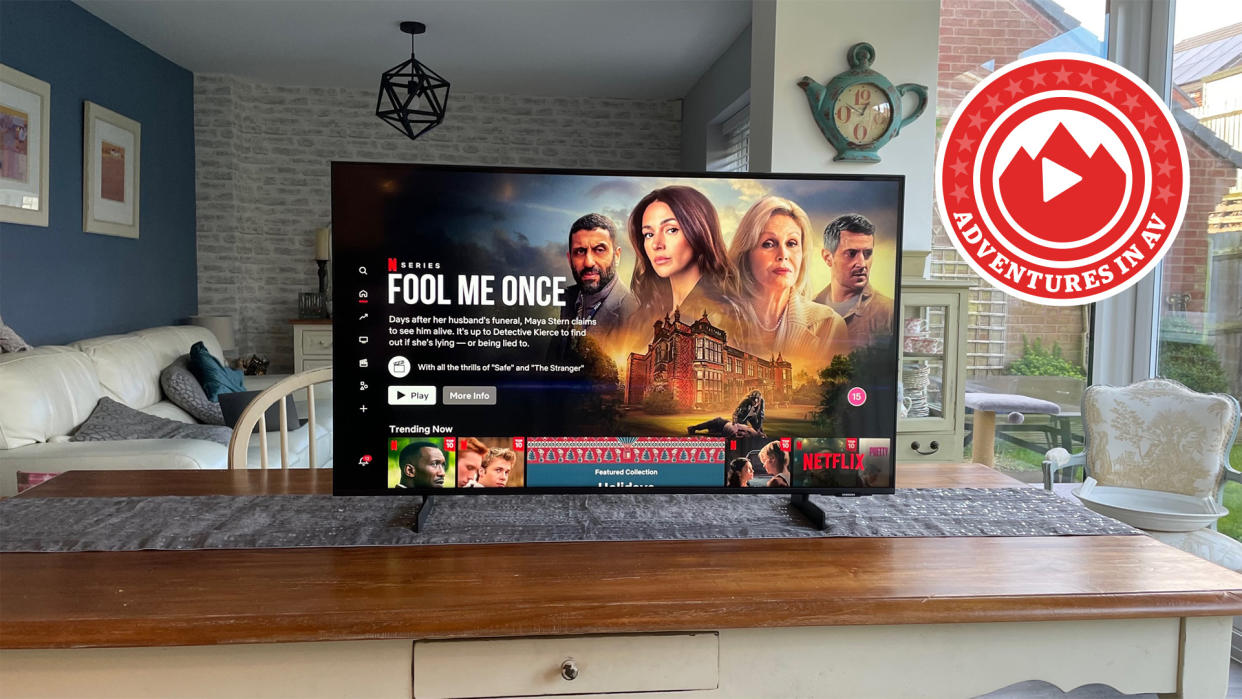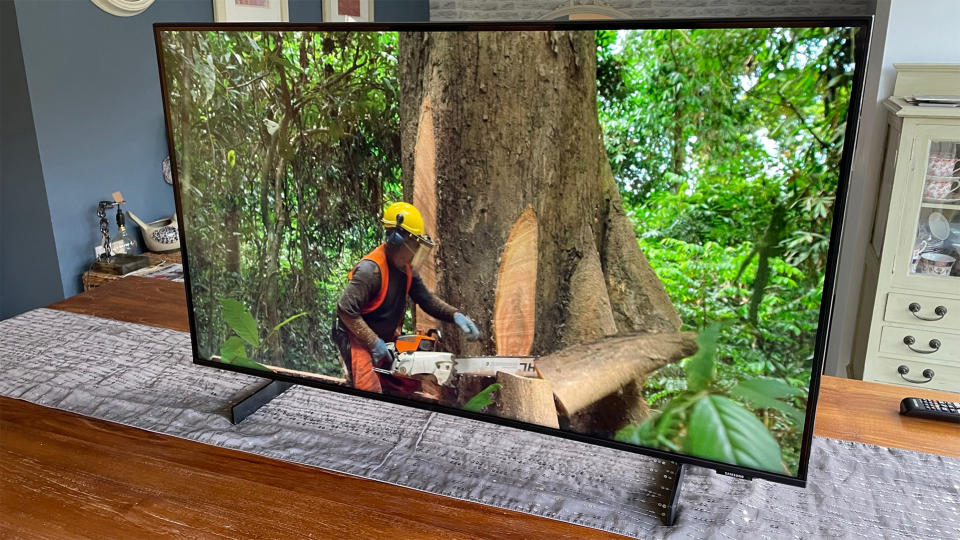Dear Samsung, Sony and LG – please start paying attention to cheap TVs as well as OLEDs

The TV market is currently at something of a crossroads. This is mainly because there is a multiple-front war raging at the top end of the market.
The big one you’ll see in the What Hi-Fi? headlines is the battle for control of the future of OLED raging between LG and Samsung.
I'm talking specifically about LG with its Micro Lens Array (MLA) and Samsung with its QD-OLED panel tech. You can get a detailed breakdown of how the two technologies work in the linked explainer pages, but the short version is that both have the same aim – to boost OLED panels’ max brightness levels.
And, having tested MLA sets such as last year’s LG G3 and Panasonic MZ2000 against the competing QD-OLED powered Samsung S95C and Sony A95L, we can confirm it is a very close race. During our tests, both technologies offered noticeable boosts to max brightness levels and have the potential to radically improve OLED TVs’ performance.
The battle’s set to continue this year with next-generation flagships such as the LG G4, Philips OLED909, Panasonic Z95A and Samsung S95D, which were unveiled at the CES 2024 in Las Vegas in January.
If you want to go even more next-gen, there’s also the looming presence of Micro LED, a new screen technology with the potential to dethrone OLED as the go-to panel tech at the top end of the market. Be warned, though, that Micro LED TVs still cost the same as a down-payment on a house. The price is a key reason Philips senior director of product strategy, Danny Tack, told us the tech belongs in a lab, not a lounge, at least for the moment, during an interview last year.
This is all very exciting but, for me, there’s one big problem: none of the innovation seen in the top end of the market is trickling down to affordable sets.
At What Hi-Fi? we always test products with performance-per-pound (or bang-for-buck if you’re in the US) in mind. We also endeavour to review as many affordable sets as possible as we’re well aware there’s a cost of living crisis going on and most people don’t have multiple thousands to splash on a new top-end OLED.
But, recently, as you’ll see in our best cheap TVs guide, we’ve struggled to find good performers at this price. Take, for example, our recent review of the Samsung CU8000. At a glance, this looks like a great value set, featuring a slick design, a surprisingly powerful processor and an enticing sub-£400/$400 price tag.

However, our extensive testing proved that it’s not a good performer in the real world. It delivered a home cinema experience rife with substantial backlight clouding issues, lightweight sound and HDR clipping during our tests.
The same was true when we tested the Hisense 50A6KTUK, which delivered a picture full of black-level issues, limited viewing angles and terrible colour accuracy. This again makes it hard to recommend, even at its very low price.
What’s worse is that these sets are actually worse than the cheap models we were reviewing a few years ago. Samsung, in fact, used to rule the roost at the budget end of the TV market. It's not all down to Samsung though. The broader point is that budget TV quality hasn't simply stagnated – it's got worse.
There are some very notable exceptions, such as the Amazon Fire TV Omni QLED, which is our current recommended cheap set and the only one in recent memory to score a perfect five stars – but that still costs around £500 / $500, which is a stretch for many homes.
I’ve detailed my ongoing dream for OLED’s price to drop down to the affordable £500 / $500 mark many times over, but based on our recent experience reviewing affordable TVs, I’d settle for a basic LCD capable of delivering good picture quality over this apparent pipe dream.
Hopefully, the powers that be at TV companies will see this and focus on the affordable end a little more this year. If not, I can’t help but feel they’re being a little tone-deaf to the current state of the world…
Myself and the team at What Hi-Fi? will continue to hunt for the diamond in the rough regardless. But if any of you, our dear readers, have a set you think could deliver the results we’re looking for then please make sure to get in touch with us on social media or via our forums and we’ll endeavour to get it in for testing.
MORE:
These are the best 50-inch TVs we’ve tested
Check out our picks of the best 65-inch TVs
Got cash to spare? These are the best OLED TVs on the market